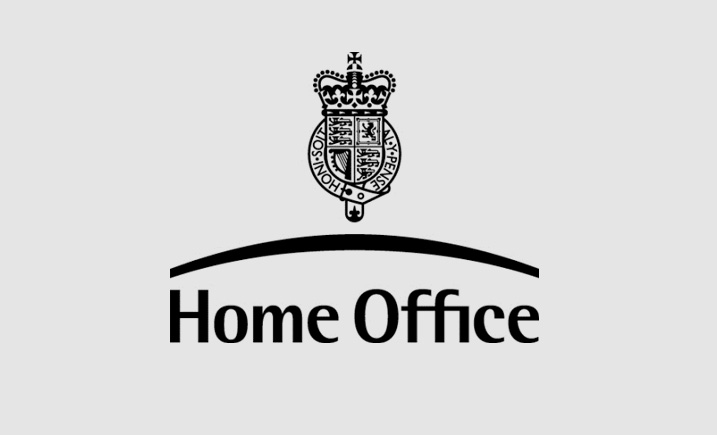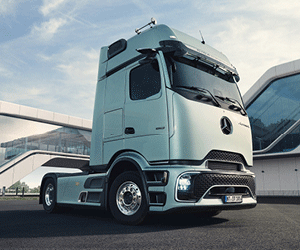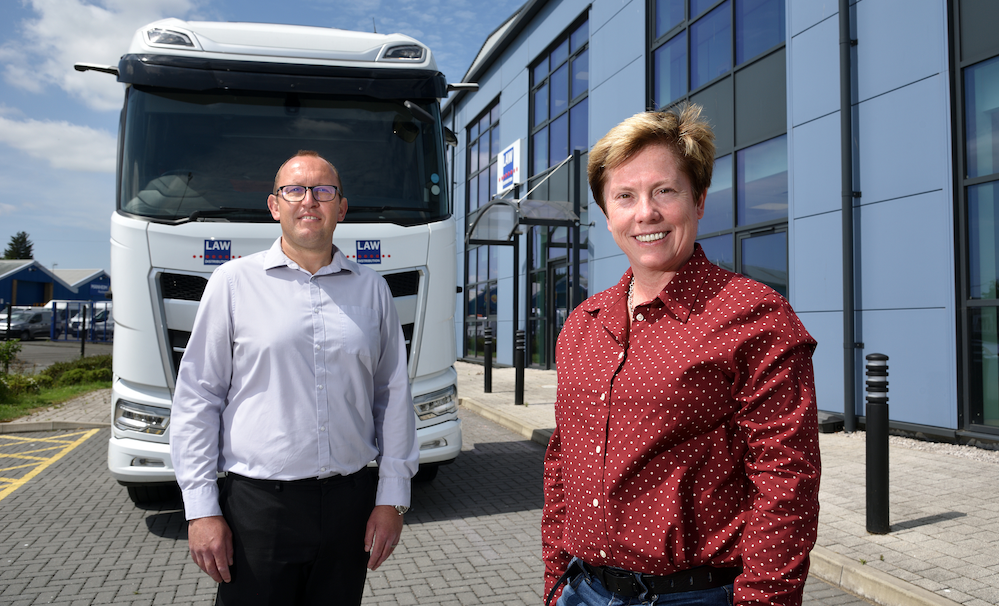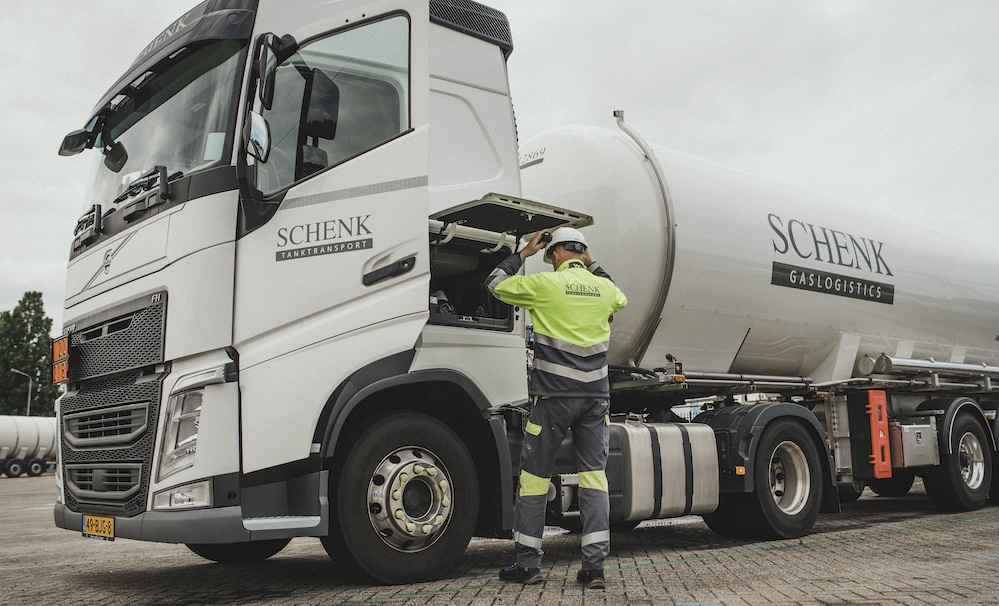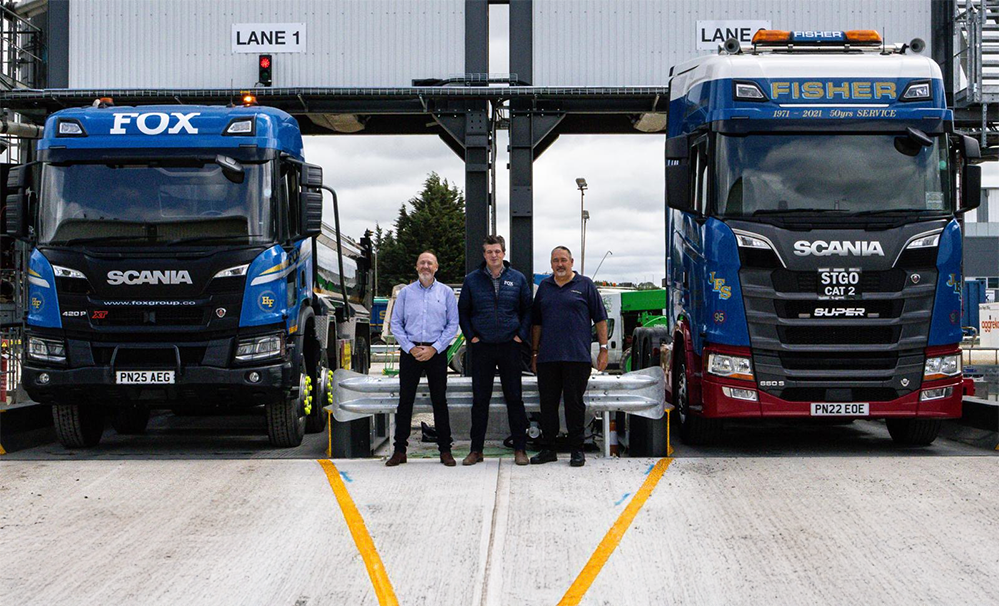The Home Office yesterday (Tuesday 17 March) hosted an inaugural summit to promote lorry security and tackle the impact of illegal immigration on the haulage industry.
The Immigration and Security Minister James Brokenshire invited key representatives from the haulage and food transport industries to discuss further measures to deal with the impact of migrants who illegally stow themselves on board vehicles to enter the UK.
As part of the discussions, industry leaders spoke about how the UK’s statutory code of conduct, which sets out how drivers should secure their vehicles, is recognised as a leading initiative throughout Europe, but pledged to work on additional improvements.
In response the industry and the Home Office has identified a programme of work with hauliers to improve the current situation. This includes:
- a formal agreement to share information on negligent British hauliers with Traffic Commissioners, who are responsible for the licensing and regulation of those who operate heavy goods vehicles;
- plans to publish details of Border Force accredited haulage companies who show best practice, as well as naming whose which have yet to pay civil penalty fines; and
- the launch of a ‘kite mark’ for Border Force-accredited companies to use on their lorries and publicity material.
The Minister outlined how maintaining the security of the border is a top priority for the Home Office – and that working closely with industry chiefs was crucial to tackle the threat of illegal immigration which poses a threat to business, drivers and the stowaways themselves.
Border Force prevented more than 18,000 attempts to cross the Channel illegally in 2013/14 — a rise of more than 60% on the previous year – and this year alone it has already detected more than 30,000 clandestine migrants attempting to reach the UK.
The increase in clandestine migrants attempting to cross the Channel has had an impact on the food sector which estimates that around £8–10 million of fresh produce was rejected a year because of illegal immigrants stowing themselves away in lorries.
The summit was attended by the Road Haulage Association, the Freight Transport Association and the International Road Transport Union as well as representatives from Defra and the Department for Transport. From the consignee sector were the Food Storage and Distribution Federation, the Fresh Produce Consortium and the British International Freight Association.
Immigration and Security Minister, James Brokenshire said:
“We continue to work with industry to strengthen the security of our borders to stop those who have no right to enter the UK. The excellent turnout at today’s summit clearly shows the importance of this issue.
“It is in all our interests to combat this type of criminality which damages the haulage industry financially and puts the safety of drivers at risk.
“We have been working with road haulage trade bodies for some time to raise awareness of the importance of vehicle security and I am pleased the UK is recognised in Europe as a leading example.”
Border Force already operates an accreditation scheme which enables hauliers to demonstrate their commitment to improving the physical security of their vehicle. To be part of the scheme traders need to ensure they have undertaken thorough checks of their vehicles at each step of their journey and have employed sufficient preventative security measures to reduce the risk of being breached.
This forms part of a cross-government programme of work that the UK is leading on to support industry and protect the British economy.
The UK has already committed £12 million to help reinforce security at Calais which includes installing security fencing and improving the flow of traffic at the port in order to reduce the risk of queuing vehicles being targeted by migrants. Vehicle scanning equipment has been upgraded and the use of search dogs has increased.
Kevin Hopper, Managing Director of Brian Yeardley Continental, said:
“Brian Yeardley Continental are pleased to be working with the Home Office on making hauliers and drivers more aware of the need to ensure vehicles are correctly checked and secure when re-entering the UK , not only to protect drivers and customer cargo but also the UK border.
“Everyone has a role to play and it starts with haulage drivers having the right security procedures in place to ensure that each time they load in Europe and travel to their port of exit back to the UK, all their checks are made and their vehicle is secure to return to the UK.”
Peter Howard, Market Head of Security at Nestle, said:
“Whilst we have good procedures in place to ensure the security of our vehicles there have been occasions where clandestine migrants have gained entry onto loads coming into the UK through the Channel ports. This not only carries a financial cost in terms of having to destroy produce but also takes up valuable time in dealing with the aftermath.
“Our partnership with the Home Office enables us to supply Border Force with details of all the loads arriving at our sites showing signs of clandestine entry. This information helps them to identify potential trends that may involve the haulier companies or drivers.”


